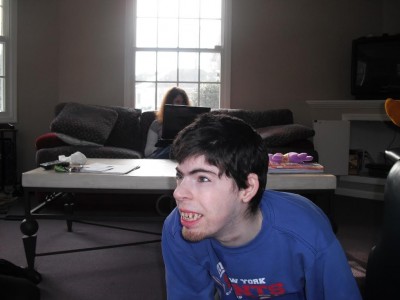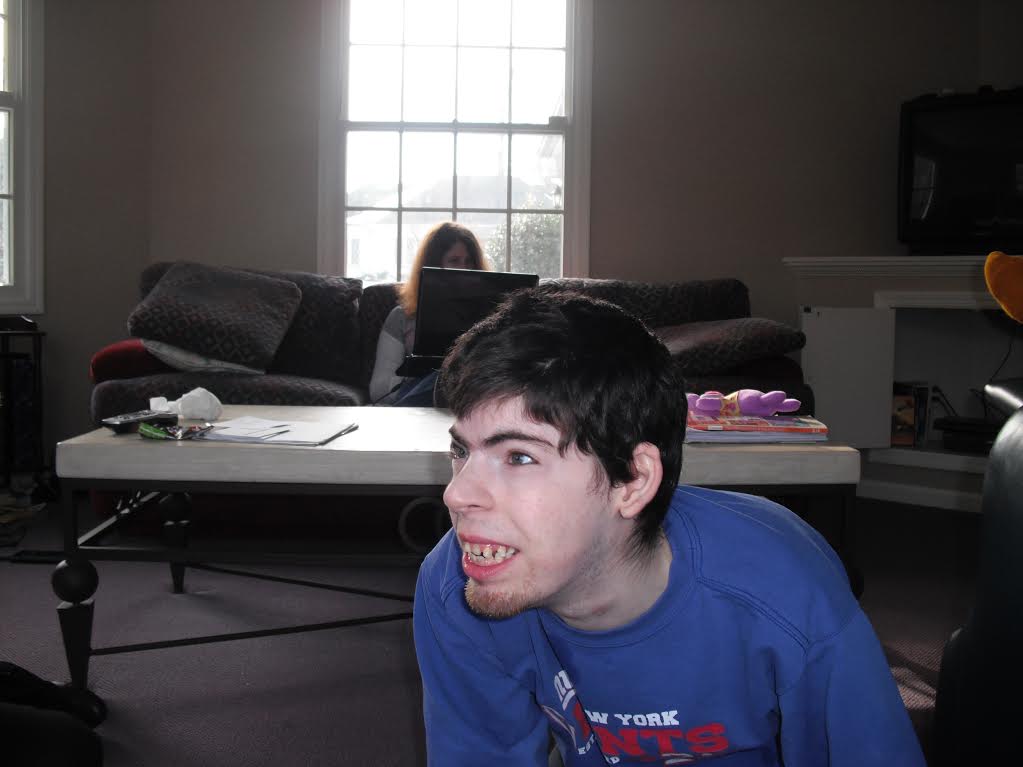
Growing up, I thought I had a normal Jewish family. I had two wonderful and loving parents, and two awesome older brothers. We kept kosher, lit Shabbat candles, and were a part of the local synagogue community. The only difference between my family and yours is that my middle brother has special needs.
My middle brother has a rare syndrome called Cornelia deLange Syndrome, or CdLS. It is a genetic disorder that usually involves symptoms like low birth weight, developmental delays, thick eyebrows that meet in the middle, and delayed growth and small stature. It affects about 1 in every 10,000 to 30,000 people. The best way I was able to describe it to those who didn’t know or understand the disorder was that it was like Autism without being on the Autism Spectrum or related to Autism at all. It was the only way I could get people to understand. In my brother’s case, it was caused by a spontaneous mutation before he was born.
My brother is lower functioning than many other people with special needs, and it has made life hard for him. He does not really talk nor is he toilet trained at age 26, despite my family’s many attempts. That does not mean my brother isn’t incredibly smart. He taught himself how to play the piano, or the same notes over and over again. He also understands everything we tell him, and even knows how to manipulate us to get what he wants, like any other person. He has his quirks just like anyone else, like how he will examine someone’s hands to get to know him or her, or how he always manages to be a ladies’ man with his big goofy grin and his musical skills.
For many years, my brother lived at home while attending a special school just for lower functioning special needs children and on weekends, we would take him to a program at our local JCC called Yaldeinu, or “Our Children,” for special needs children to connect them with their Judaism. However, it became hard to have my brother at home. He would have cycles where he would be very happy and cooperative, and other times when he would be sad, depressed, or angry and unable to express the way he felt. My family’s world revolved around him. No one seemed to be able to control him when he got aggressive.
Right before my thirteenth birthday, we decided it was time for my brother to go to a residential school, since it was just getting too hard to deal with him at home and my parents also knew that my brother stood a better chance at getting into a group home, or a home for special needs people after they turn 21, if he went off to a residential school rather than staying at home. We knew the residential school could handle him better at a residential school than his current school.
My parents had looked at residential schools for my brother five years prior, but couldn’t seem to find the right one. However, the residential school we ultimately settled on, The Benedictine School, was about four hours away in Maryland and run by nuns, but would allow my brother to come home every five weeks for five days. At first, it did seem somewhat weird to me, at least, to send my Jewish brother to a school run by nuns, especially when we saw the forms asking questions like “Would you like your child to attend weekly Mass?” Luckily, we were able to opt my brother out of Mass.
However, once my brother got started there, I saw things differently. This was not a school focused on religion; rather, these were people who had dedicated their lives to the sake of helping others—their religious calling was to help the special needs community regardless of the religion of the students. While my brother did sometimes get into trouble, as he slapped one of the nuns on the breast once and pinched another nun on the butt among other things, he seemed happy and they treated him well there. He made a lot of progress there and had the support of a loving and caring community who loved him for who he was.
My brother now lives in a group home near my family in New Jersey, but he also attends a Jewish-sponsored day program through the Jewish Services for the Developmentally Disabled, called the WAE (Wellness, Arts, and Education) Center. I had actually found the program for my brother after I volunteered there with my Jewish day school back in high school. I had thought the program would be perfect for him, since, like his residential school, this was a community of people who wanted to see these special needs people reach their potential, no matter their religion. My brother seems happy at both his group home and his day program, which is enough to make my whole family happy.
After all these years of having a special needs brother, I have to say that I am touched and impressed of how religious communities can come together to help those who need it the most. The idea of religion is “To love thy neighbor as thyself,” or to treat everyone with respect and love, which I have seen happen for the sake of my brother. My brother is not just someone who is developmentally disabled; rather, in the eyes of religion, he is a human being and always deserves to be treated like one.
Shira Kipnees is a student at Franklin & Marshall College.

